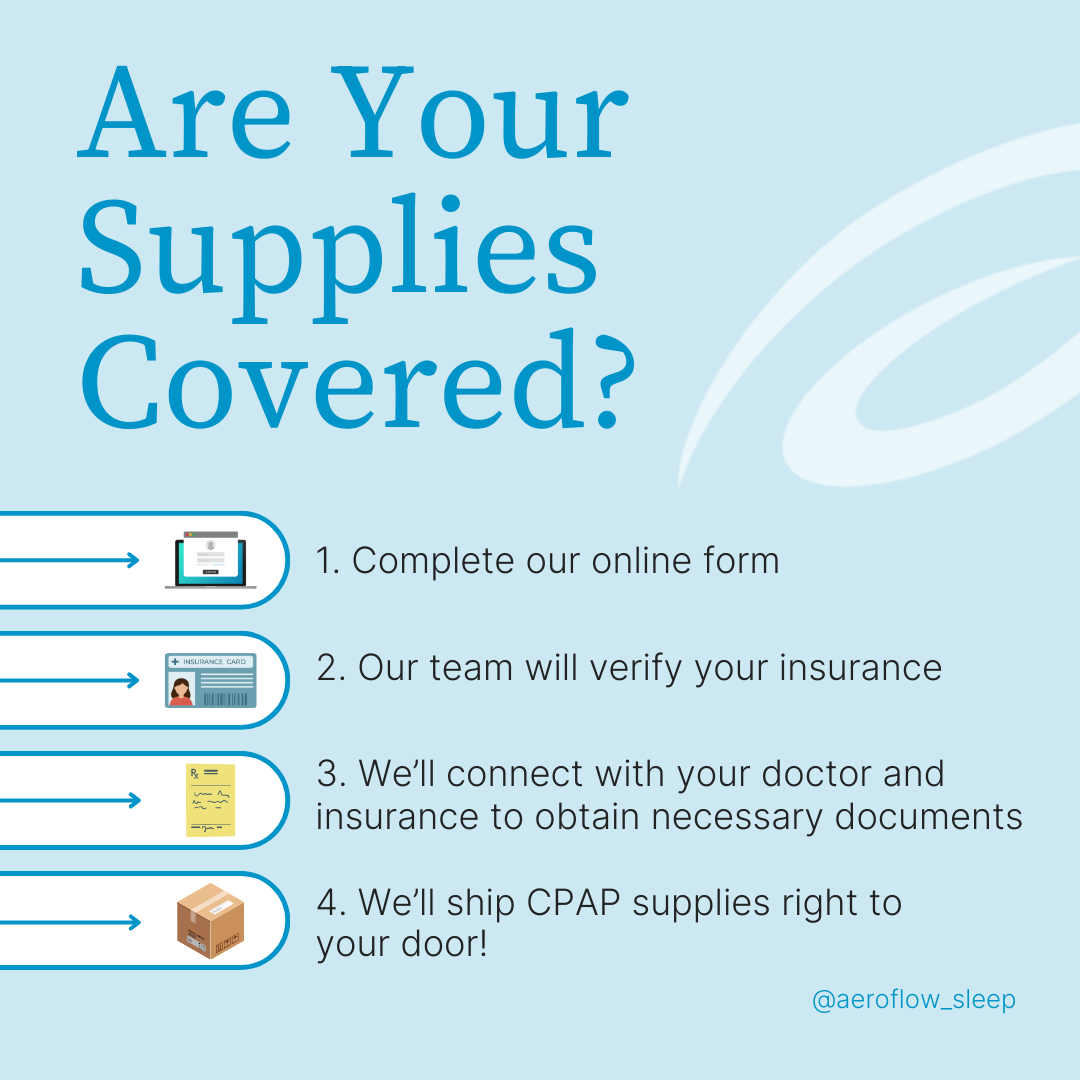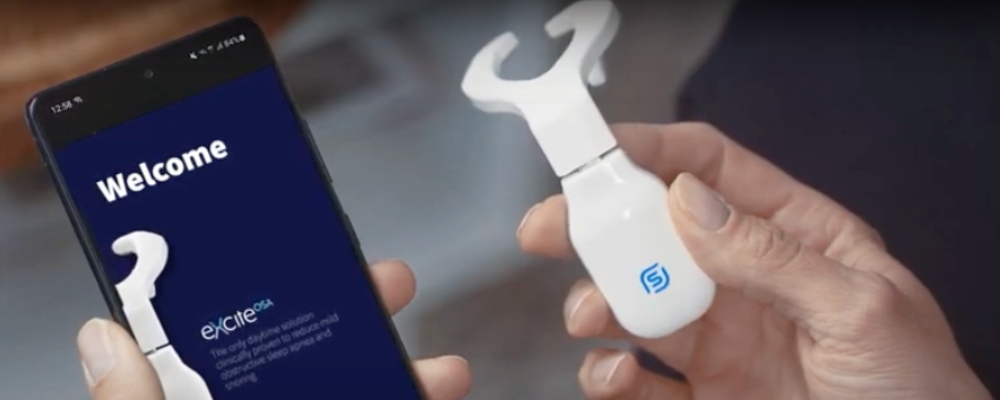Sleep apnea, GERD, and other sleep disorders are often found together. There is a relationship, for example, between GERD and insomnia. There is also a link between obstructive sleep apnea (OSA) and insomnia. So, is there a link between sleep apnea and GERD?
If you have both, it turns out that treating one condition often leads to improvement of the other. Specifically, if you have sleep apnea and suspect GERD - or your GERD is diagnosed and you suspect sleep apnea - you may be able to improve both conditions with CPAP therapy.
We’ll dive into exactly what GERD is, its relationship to sleep apnea, and how CPAP treatment can help. Many patients improve both their reflux symptoms and the poor sleep quality caused by OSA with CPAP.
What Exactly Is GERD?
GERD stands for gastroesophageal reflux disease. That’s a mouthful, so it’s also referred to as “acid reflux” and “heartburn”. People generally use these terms interchangeably. If you are talking with your doctor, don’t worry if they use all three. They all refer to the same general issue, but there can be some serious differences.
Acid reflux is when stomach acid moves into the esophagus. This is often due to a weakened lower esophageal sphincter, which is a band of muscle at the end of the esophagus. It works like a valve and separates the esophagus from the stomach. It typically only opens when you swallow. If stomach acid creeps up consistently over time, you could develop gastroesophageal reflux disease, or GERD. Technically speaking, heartburn is a symptom of both acid reflux and GERD, but GERD is usually a more severe problem than acid reflux.
Twenty percent of American adults experience acid reflux at least once per week. Most people can reduce symptoms with lifestyle and diet, but some may need medication or treatment, up to and including surgery.
Symptoms of GERD
There are a plethora of GERD symptoms, but the most common is hearburn. The rest we've listed here:
- Upper abdominal, neck, or chest pain
- Burning throat pain, chronic laryngitis, inflamed vocal chords, or hoarseness
- Toothaches or halitosis (bad breath)
- Persistent cough
- Trouble swallowing
- Asthma
- Nausea
- Regurgitation
- Insomnia
Then, of course, there are risk factors for GERD too.
Risk Factors for GERD
Unfortunately, there are many factors that contribute to the onset and severity of GERD. It is best to review an overall health and lifestyle questionnaire with your gastroenterology team to see what may be linked to your GERD. Some of the most common include:
- Obesity
- Pregnancy
- Smoking or seconhand exposure
- Certain medications
- Carbonated and/or caffeinated beverages
- Frequent alcohol consumption
- Irregular meal frequency or large portions
- Vigorous activity after eating
There's also the problem with eating fatty, fried, or spicy food. Dr. Monique May, Board-Certified Family Physician, recommends reading this article by John Hopkins Medicine for some wellness and prevention tips; such as avoiding foods that contain tomato-based sauces, citris fruits, peppermint, and chocolate.
How is GERD related to sleep apnea?
Now for the question you've all been waiting for! Research is ongoing to find a direct, causal relationship, but they are known to occur together frequently. In fact, in a recent study, 78% of participants with sleep apnea had acid reflux as well.
Some studies suggest that obesity may be the culprit behind the prevalence of sleep apnea and heartburn occurring simultaneously. Despite the relationship not being clear, heartburn can be reduced for OSA patients treated with CPAP, with their mean heartburn score reduced by 60%!
How Can GERD Be Treated Alongside Sleep Apnea?
There is some good news for patients who suspect they have both sleep apnea and GERD. Most treatment options for GERD align with treatments for OSA and reduce sleep disturbances in general. One common lifestyle recommendation for GERD is to stop eating three hours before bed. Admittedly, this may not do much for OSA, but the following acid reflux recommendations are known to be effective for both:
1. Limit Alcohol Consumption
Doing this, especially before bed, is also a sleep apnea prevention recommendation. This is because alcohol can act as a sedative and make it harder for you to wake up. As a result, you may be flooded with more stress hormones than normal, and they can raise your blood pressure and wreak havoc on your cardiovascular system.
2. Lose Weight
Weight loss is one of the best things you can do for your overall health if you are overweight. As mentioned above, there are studies that suggest that obesity may be the underlying condition causing sleep apnea and heartburn to occur simultaneously.
If you have a GERD diagnosis, suffer from obesity, and have trouble sleeping that isn’t much improved with over-the-counter sleep medicine, it may be time to address poor sleep quality with your doctor. Consider asking about a sleep study. This is the overnight diagnostic test to determine the presence and/or severity of sleep apnea.
3. Adjust Your Sleep Position
This subtle change could potentially make a noticeable difference in your symptoms. Side sleeping with your head slightly elevated will make it more difficult for stomach acid to rise through the lower esophageal sphincter and reach the back of the throat.
Left-side sleeping is especially helpful for sleep apnea, and this is one of the easiest and least expensive lifestyle changes you can make. Committing to this simple change can reduce the symptoms of acid reflux while also addressing the sleep problems that come with OSA.


4. Use Proton Pump Inhibitors
Proton Pump Inhibitors (PPI) are designed to treat GERD, and are still being evaluated as a possible treatment for sleep apnea. There have been a number of as yet-inconclusive studies on PPI’s simultaneous effects on GERD and OSA. PPIs work to reduce the amount of stomach acid produced by your stomach lining. The research is ongoing on whether PPI could be a viable treatment for sleep apnea.
5. Try CPAP Therapy
Finally, there's always our tried and true method as mentioned above. CPAP therapy has been shown to reduce heartburn scores by as much as 60%. CPAP treatment is short for continuous positive airway pressure, and it uses a steady stream of warm, moist air to keep soft tissues from collapsing into the airway - the main cause of obstructive sleep apnea. This treatment option can help reduce morning headache, daytime sleepiness, a sore throat from snoring, and improve both sleep quality and cardiovascular health by reducing the number of stressful, gasping awakenings you experience each night.
The possibility that someone has these two conditions at the same time is certainly a consideration for your medical providers. If you believe you may have both GERD and sleep apnea, be sure to consult with your doctor to confirm (or rule out) your concerns!
References
Jung HK, Choung RS, Talley NJ. Gastroesophageal reflux disease and sleep disorders: evidence for a causal link and therapeutic implications. J Neurogastroenterol Motil. 2010 Jan;16(1):22-9. doi: 10.5056/jnm.2010.16.1.22. Epub 2010 Jan 31. PMID: 20535322; PMCID: PMC2879818.
Taraszewska A. Risk factors for gastroesophageal reflux disease symptoms related to lifestyle and diet. Rocz Panstw Zakl Hig. 2021;72(1):21-28. doi: 10.32394/rpzh.2021.0145. PMID: 33882662.
“GERD Diet: Foods That Help with Acid Reflux (Heartburn).” Edited by Ekta Gupta, Johns Hopkins Medicine, Johns Hopkins, 2022, https://www.hopkinsmedicine.org/health/wellness-and-prevention/gerd-diet-foods-that-help-with-acid-reflux-heartburn.
Il, Darien. “Study Finds That CPAP Therapy Reduces Acid Reflux in People with Sleep Apnea.” American Academy of Sleep Medicine, Journal of Clinical Sleep Medicine, 3 Oct. 2016, https://aasm.org/study-finds-that-cpap-therapy-reduces-acid-reflux-in-people-with-sleep-apnea/.
Rassameehiran S, Klomjit S, Hosiriluck N, Nugent K. Meta-analysis of the effect of proton pump inhibitors on obstructive sleep apnea symptoms and indices in patients with gastroesophageal reflux disease. Proc (Bayl Univ Med Cent). 2016 Jan;29(1):3-6. doi: 10.1080/08998280.2016.11929340. PMID: 26722154; PMCID: PMC4677839.









